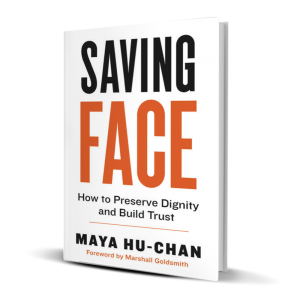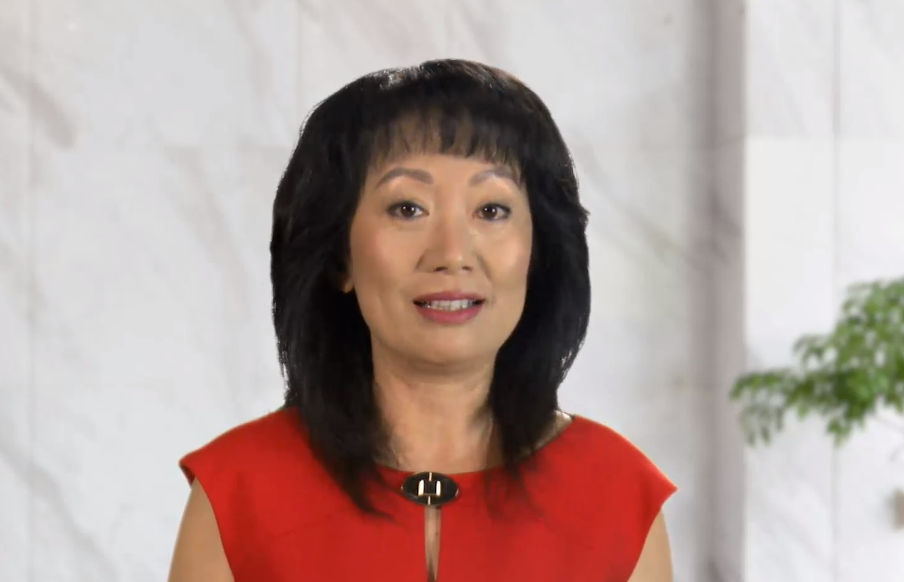When you hear the words ‘saving face,’ what do you think of? You might imagine someone trying to recover after saying something embarrassing. Maybe they made a mistake in the workplace and need to repair their reputation. Face is a universal concept, beyond its origins in China. In most Asian cultures, the concept of face extends to something much deeper. It speaks to a deeper need for dignity and acceptance, and the ways we grant dignity to one another. Understanding this universal human concept can help us make the most of our business relationships.
So, what is face? Face represents one’s self-esteem, self-worth, identity, reputation, status, pride, and dignity. The concept of face is so entrenched in Chinese culture that multiple idioms are part of the everyday conversation. For example, Diūdiào liǎn translates to throw away the face; to be so ashamed or embarrassed, you feel like you have removed your face and tossed it away. To save face means to protect your face. You can also give face to someone by publicly praising or appreciating them. Conversely, when you tear apart the face, you publicly humiliate, scold, or chastise someone, causing so much harm that their face cannot heal.
Recently, I was working with a global technology company headquartered in the U.S. The client asked me to speak to five visiting Chinese engineers who came here from China for a week-long technical training. During the training, they sat quietly and never asked any questions. The company wanted to find out how the training was going for them so far. Now, over lunch in a cafeteria, the engineers said little in English. When I spoke to them in Mandarin, they immediately opened up. One complained that the American instructor gave them a 200-page technical manual as soon as they walked into the door, after 15 hours of flight. They had no time to review it, and it was written in English. Well, I ask them, how much of the training did you understand? About 20%, they replied reluctantly.
 Unbeknownst to the Americans, the Chinese engineers were afraid to lose face. They needed to protect an appearance of confidence and credibility. They didn’t want to admit that they were lost and confused. To get U.S. and Chinese teams working together more smoothly, I recommended a few simple solutions. For the American instructor: speak slowly and clearly, and use diagrams and hands-on demonstrations while going over technical materials. Give the engineers time to process and come up with questions as a group, not individuals. In the end, the U.S. company extended the training one more week for the Chinese engineers. Both parties saved face, and the training was a success.
Unbeknownst to the Americans, the Chinese engineers were afraid to lose face. They needed to protect an appearance of confidence and credibility. They didn’t want to admit that they were lost and confused. To get U.S. and Chinese teams working together more smoothly, I recommended a few simple solutions. For the American instructor: speak slowly and clearly, and use diagrams and hands-on demonstrations while going over technical materials. Give the engineers time to process and come up with questions as a group, not individuals. In the end, the U.S. company extended the training one more week for the Chinese engineers. Both parties saved face, and the training was a success.
When we’re accustomed to face, we can begin to use it as social currency. It is possible to imagine how we build a supply of face with someone by continuously making deposits. We build trust, we express gratitude and appreciation, we encourage and support others, we help them succeed, we compliment them and recognize them for their contributions, in public and in private. Or, we can empathize, putting ourselves in their shoes to understand their challenges. We give them and their voice equal time and weight. When something goes wrong, we have their back. We help them recover, hold them accountable. They know you have their back. It’s tough love. When we need to make a withdrawal, we’re careful to not tear the face apart. We provide feedback in a way that saves face and preserves dignity. If we mistakenly cause them to lose face, the relationship can still be saved if there are enough deposits to cover the withdrawal.
The more face you have, the easier and faster you can get things done. Interpersonal relationships are crucial to business, whether you’re working one-on-one with a local colleague or negotiating business with overseas clients. Saving face enables us to connect with people, break down barriers, and build trust and authentic relationships.
In summary, here are three things to remember when applying the concept of face to build deep, authentic interpersonal relationships:
1. Face is like social currency. The more you have, the easier and faster you can get things done.
2. Build a supply of face by making deposits in the relationship, such as building trust, keeping your promise, expressing gratitude and appreciation, and showing empathy.
3. If you accidentally cause someone to lose face, the relationship can still be saved if there are enough deposits or trust to cover the withdrawal.
 My book, Saving Face: How to Preserve Dignity and Build Trust, illustrates how we can honor face to create positive first impressions, avoid causing others to lose face, and, most importantly, help others save face to build trust and lasting relationships inside and outside the workplace.
My book, Saving Face: How to Preserve Dignity and Build Trust, illustrates how we can honor face to create positive first impressions, avoid causing others to lose face, and, most importantly, help others save face to build trust and lasting relationships inside and outside the workplace.
Click here to watch the video.
This video was originally posted on AthenaOnline.com

